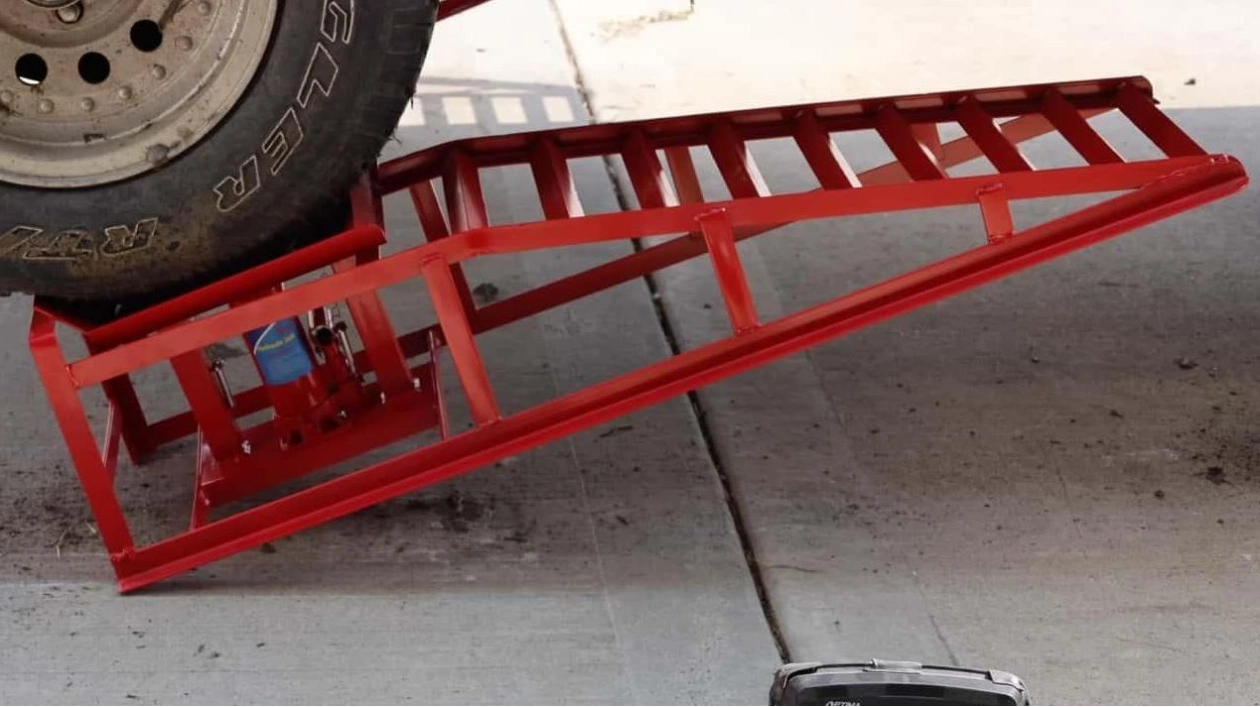Lifting your car and securing it on jack stands is a tedious and time-consuming task. Not everyone has the time or patience for it, which is why car ramps exist. Car ramps are essentially small ramps that you drive your car onto, providing easier access to components like the engine. However, as this video demonstrates, car ramps are not exactly the most reliable tools and should be used with caution.
This comparison test from the Project Farm YouTube channel features 11 different car ramps, ranging in price from $58 to $160 per pair, to determine which performs the best under identical conditions. From the outset, it's evident that car ramps are not the safest tools available. Almost every ramp slipped when the host attempted to drive a rear-wheel drive truck onto them. Many of the ramps lacked adequate padding, preventing them from gripping the ground surface effectively. The channel had to resort to using water-soaked T-shirts as friction materials to keep the ramps in place.
Project Farm also used a Buick LeSabre to test clearance and ramp grip for front-drive vehicles. This highlighted a new set of issues, including some ramps that couldn't accommodate the LeSabre's reasonable approach angle. The test also revealed that one ramp's rubber pads were already failing, while another ramp slipped and shot underneath the Buick's rockers, causing minor damage. Another ramp shot out in front of the car as it descended to the ground.
The only test where the ramps truly excelled was when load ratings were evaluated. Almost all of the ramps were able to support the 7,750-pound front axle of a tractor, which weighed more than most of the ramps are rated for.
While car ramps can be handy for quick jobs like oil changes, we recommend against using them regularly unless you can secure them to the ground.






